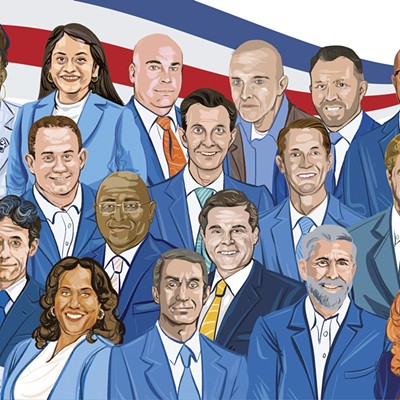Monday, February 10, 2014
Pitt receives grant to study disproportionate HIV rates among black gay men
The public health community has long known that black gay men are more likely to be infected with HIV than their white peers. And the conventional wisdom over the past 30 years has been largely the same: Black men just engage in riskier behavior.
But that conventional wisdom is wrong and the University of Pittsburgh Graduate School of Public Health announced today they were awarded a $3.2 million grant to find a better answer.
The question underlying the study is simple: “Where could all this virus be coming from, if black gay men are in fact more conservative in terms of sex and less likely to shoot drugs?” says Ron Stall, director of the Center for LGBT Health Research at Pitt and principal investigator on the project. "If you can’t answer that basic question you can’t do HIV prevention among black gay men.”
According to the CDC, young African American gay and bisexual men accounted for the highest number of new HIV infections among all gay and bisexual men in 2010. Black gay and bisexual men ages 13-24 also accounted for twice as many new infections as their white or Latino/Hispanic peers in that year.
Some in the public health community have argued all along that riskier behavior wasn't the right explanation, Stall says, but "It was ignored; people didn't know what to do with it."
The project, a collaboration with the Center for Black Equity, will survey 6,000 black men who have sex with men—the largest sample of this subgroup ever studied—to try and figure out why they are less likely to get tested for HIV, or seek medical treatment even if their HIV status is known. Participants will give their feedback anonymously and will be recruited at black gay pride events across the country. They'll also be asked to answer questions about their mental health, substance use and violence victimization and other health issues to understand negative health outcomes associated with the subgroup, but also possible areas of resilience.
"It turns out black men have far less access to medical care,” Stall says. "The question has turned into 'how can we help marginalized populations get into medical care?'”
That's an increasingly important question, since HIV treatment can render viral loads undetectable, meaning "your infection is being effectively controlled and your immune system will start to recover and your chances of getting an opportunistic infection will radically decline," Stall says. It also dramatically reduces the chances of spreading the infection.
The research is funded by the National Institute of Nursing Research at the National Institutes of Health, an organization that funds a disproportionately small number of LGBT health related projects.
"At this point in the game, anyone who gets funded is surprised,” Stall says. "The [proposal] was written under the attitude of 'shame on me if I don’t try and shame on them if they don’t fund it.'"
Tags: LGBT , HIV , African American , sexual minority men , LGBT research , Pitt , NIH , public health














